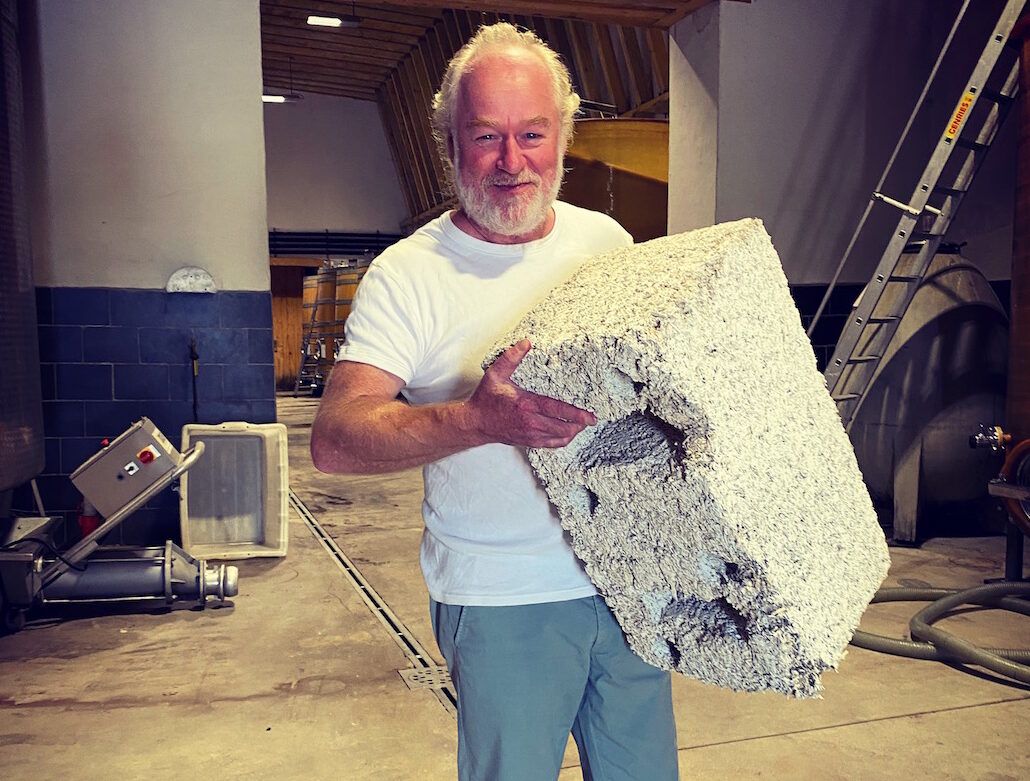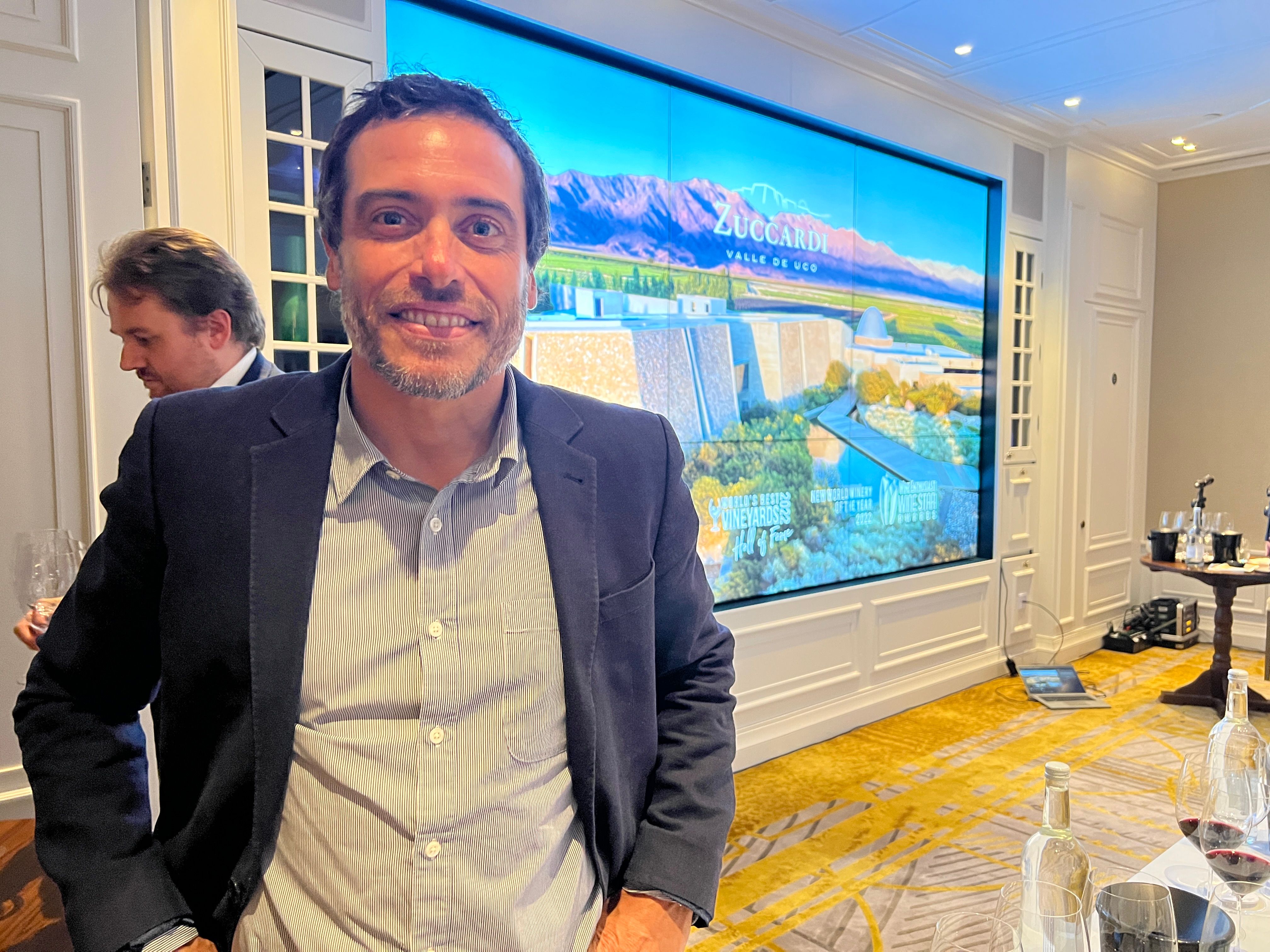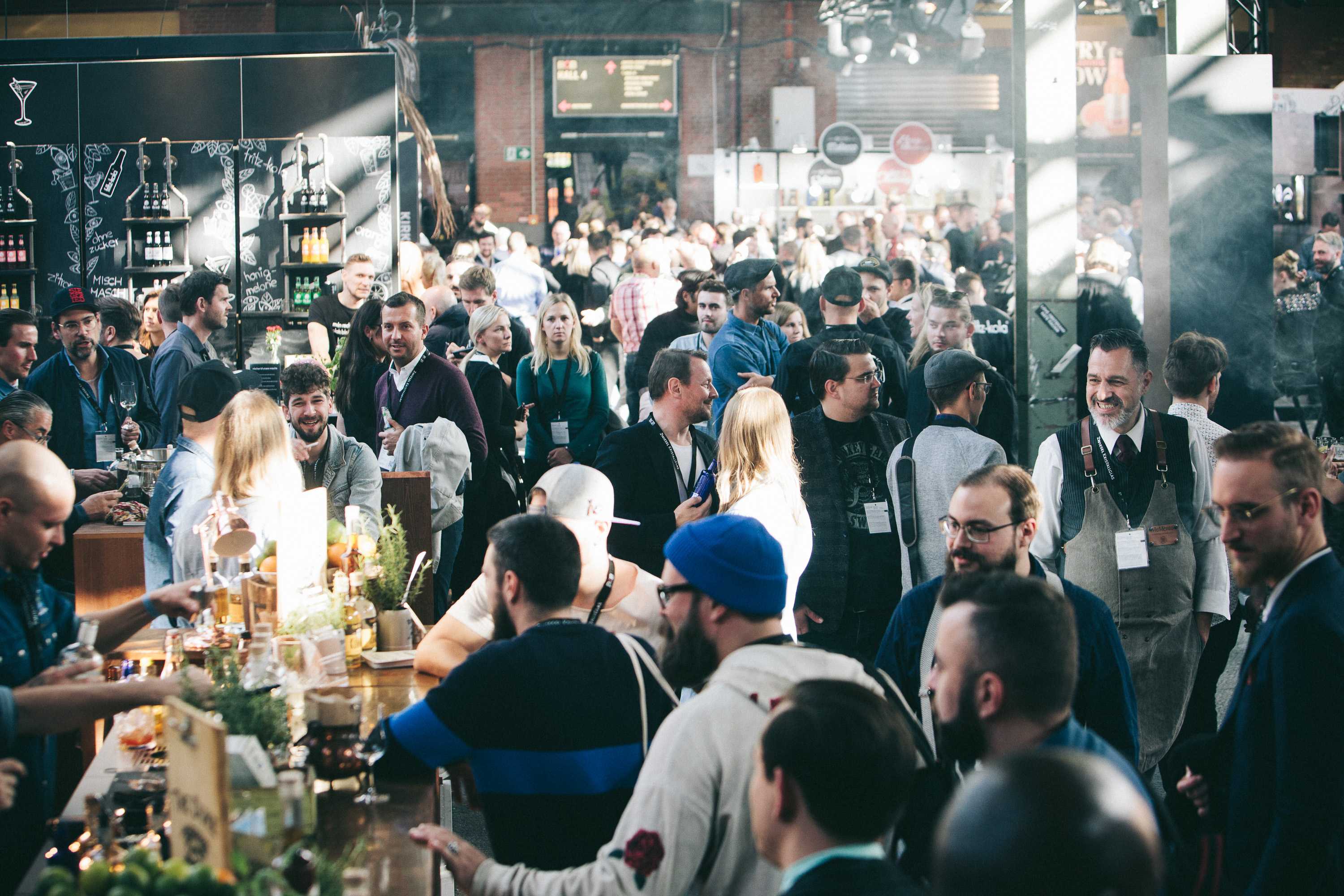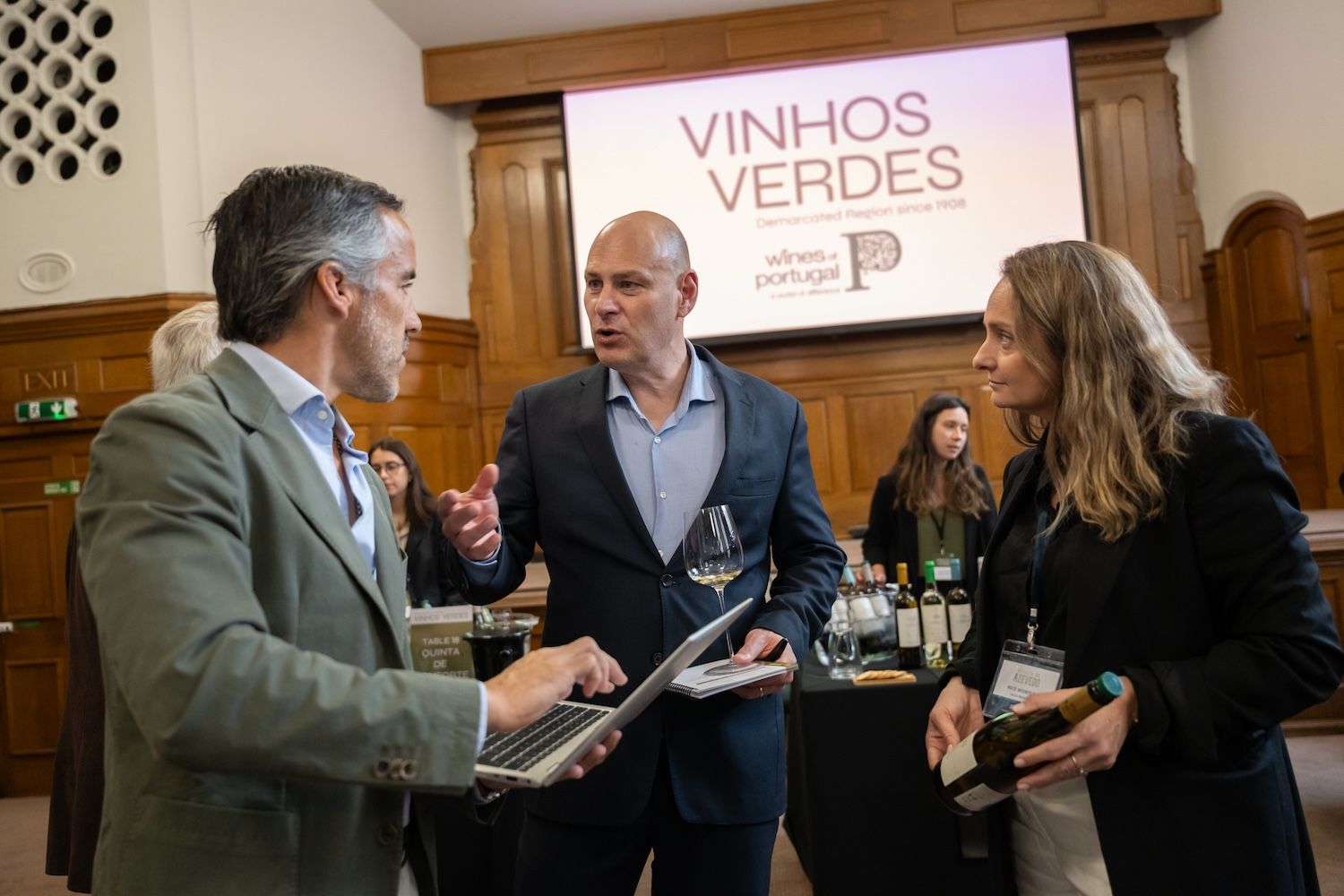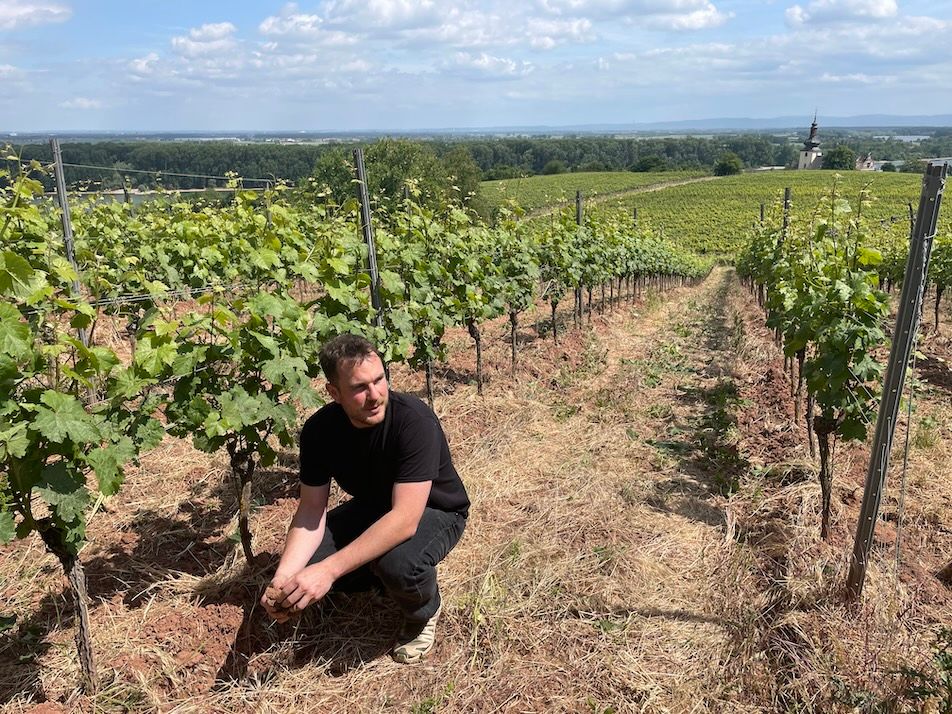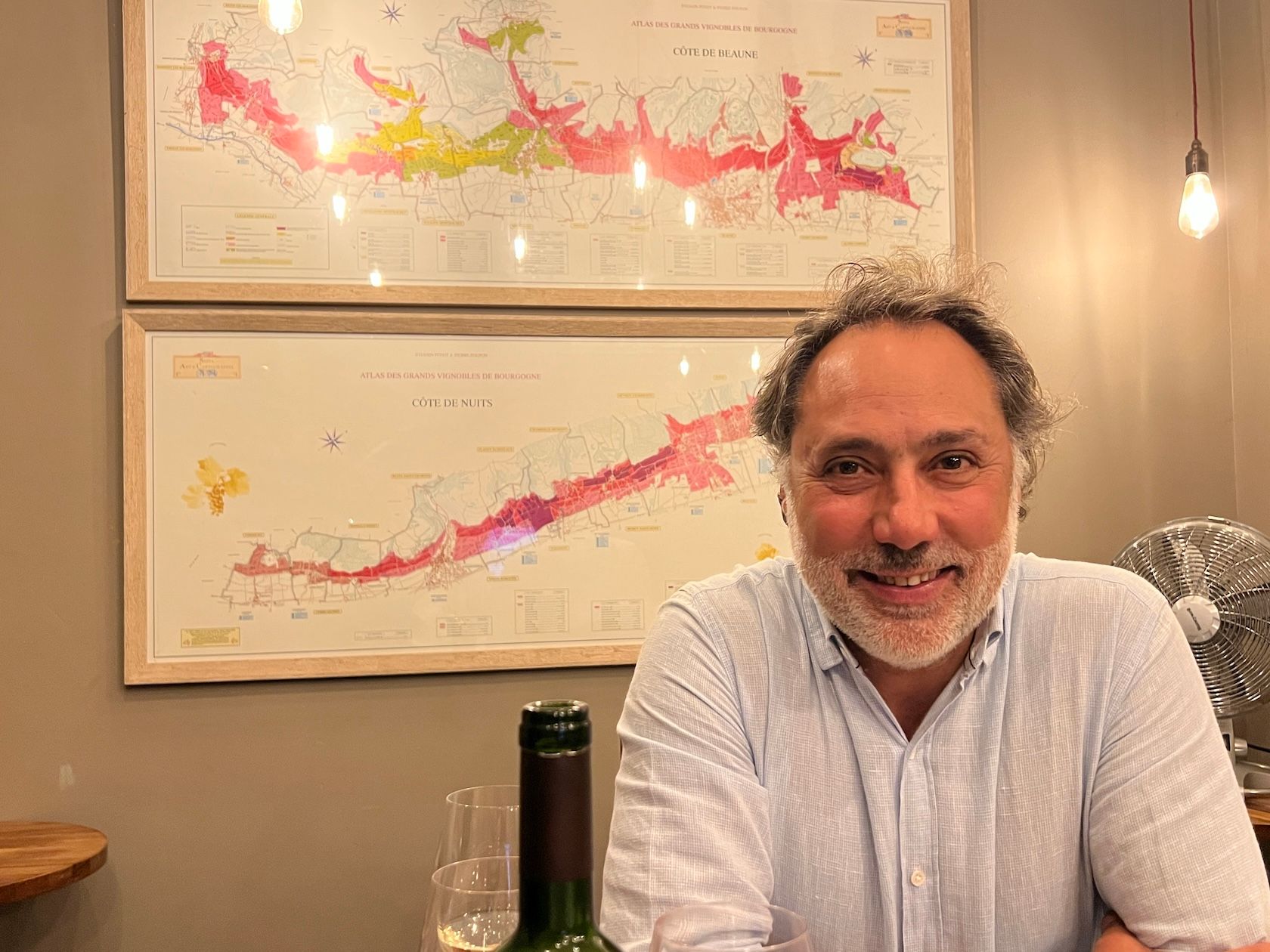Apart from Château Maris, Eden also now has the key consultancy role of Chef de product biologique at Invivo the cooperative group that owns 50-60% of all French agricultural land.
It’s not for nothing that Wine Spectator named Château Maris as one of the most environmentally-friendly wineries in the world. Château Maris’s Hemp Cellar, as it is officially called, is not a scenic building. In fact it is almost an eyesore from the main road that connects Carcassonne to La Livinière, the true ‘premier cru’ village in the Languedoc. But you get that ‘light-bulb moment’ of what sustainability means when you step inside the winery. Outside the temperature is touching 40 degrees C, inside it’s 17 degrees, year-round with no air-con or heating ever used.
This low energy construction, based on Bertie Eden’s own design, is made of wood with bricks made out of hemp straw, mixed with limestone and a molasses-based adhesive, and a ‘living’ roof that’s made of grass. Solar panels provide the power, it is all gravity-fed and reed beds recycle the water.
“The only thing that’s not carbon neutral is this,” Eden says jumping boyishly on the concrete floor with his work boots, “but then I can’t have any vegetation creeping in.”
He describes trying to build walls with hemp bricks that hadn’t quite dried naturally, with the same glee as when he fills his fists with the earth of his vineyards, like an ever-so-slightly posh David Bellamy…crossed with Richard Harris.
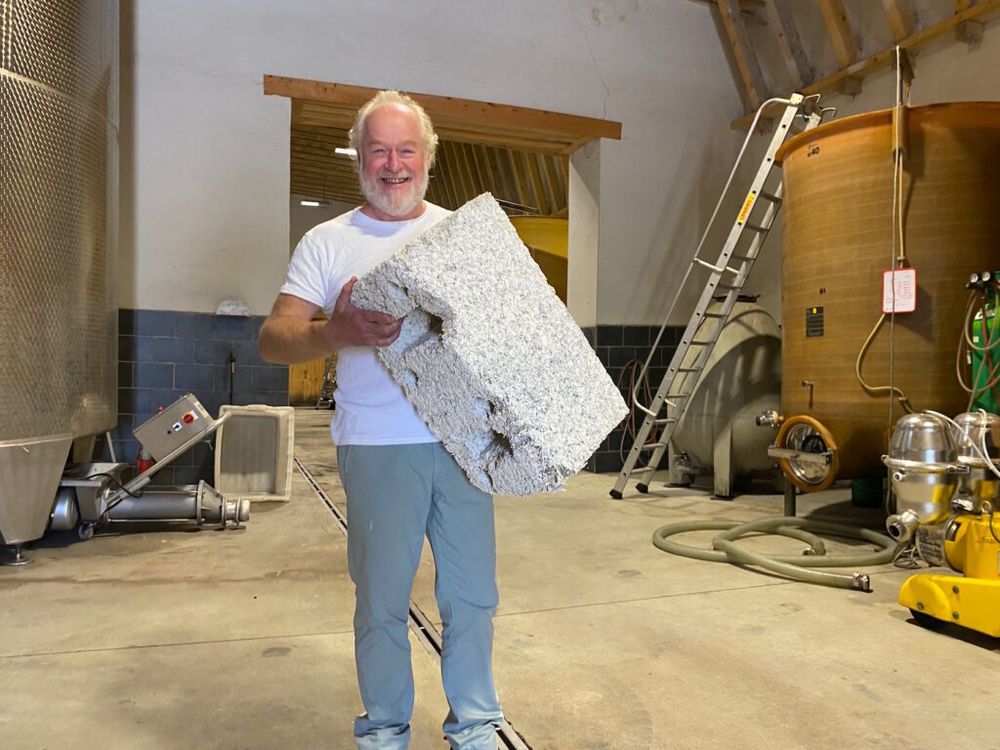
Bertie Eden with one of his hemp ‘cement’ bricks, July 31, 2020
“Here try this,” he says enthusiastically, offering me some 2019 Syrah from a two year-old barrel. The wine is impressive and shows the character of what was a cool vintage here – great depth of flavour, firm acidity. We then go on to try other barrels, Eden smiling with pride, silver hair pushed back over balding head.
Inside this revolutionary building the equipment is pretty standard by comparison. The wine is fermented in 100 and 50 hectolitre cement tanks or 60 hectolitre wooden barrels which become open top fermenters. What is not so standard, though, are the row of concrete eggs that he has been using for the past 16 years to ferment his Grenache in. Eden commissioned them from Marc Nomblot, whose company has been making concrete vats since the 1920s, and who first made a concrete egg for Michel Chapoutier in 2001.
The sample of 2019 Grenache that we taste has an elegance and freshness that speaks volumes of how it has been farmed.
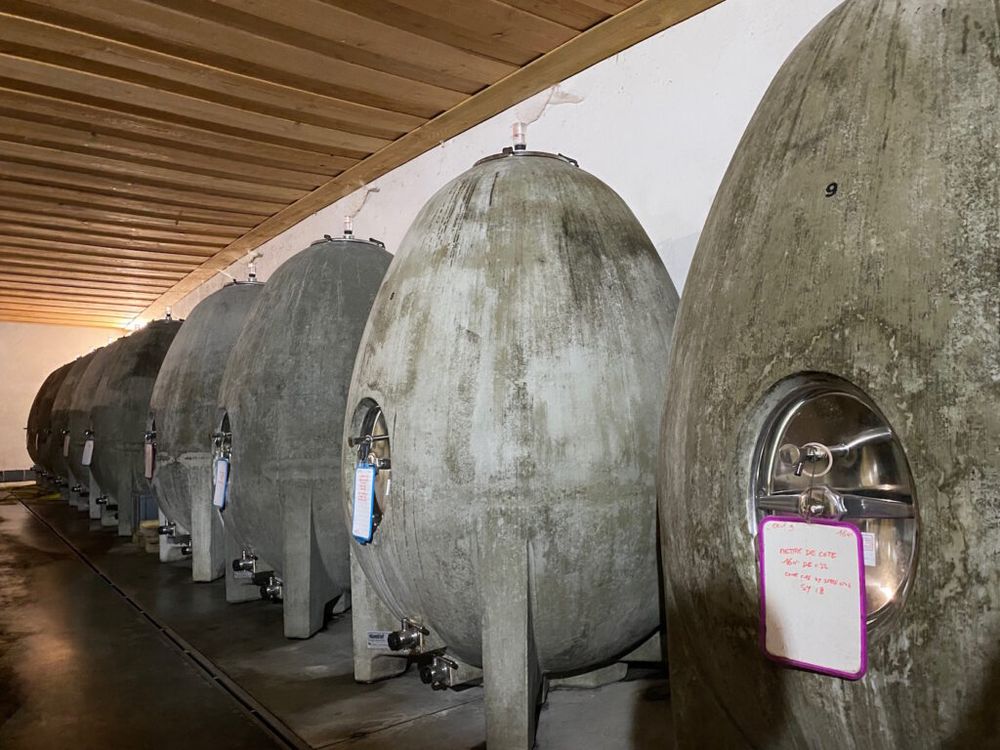
Ahead of the curve, the 18 hectolitre concrete eggs installed in 2004
A pioneer in the Languedoc
La Livinière is now recognised as the premium site in the Minervois. The alluvial soils from the Montagne Noir, which lie to the North of the village is one of the key factors, along with Mediterranean sun and cool wind from the Pyrenees for producing wines of such power and finesse. But it was not always the case.
When Bertie Eden established Château Maris in 1997 with his American financier friend Kevin Parker, there were no wineries here practising organic viticulture, the whole Languedoc-Roussillon region being largely responsible for France’s bulk wine ‘lake’. Eden claims to be the first to practise organics with maybe 60% of wineries now following suit, he was also the first to go fully biodynamic.
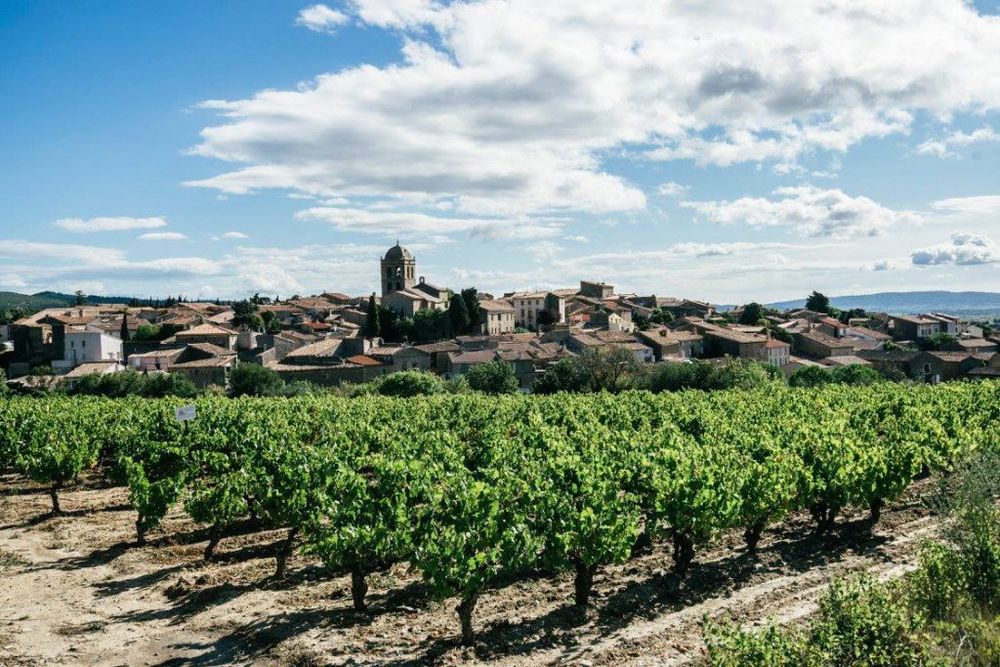
Minervois-La-Livinière AOC covers six communes: Azillanet, Azille, Cesseras, Félines Minervois, La Livinière and Siran. It covers 350 hectares of vines and features two cooperatives and 40 wine producers.
“I bought the winery in 1997, which was not a good vintage and the fruit did not taste good, but 1998 was a very good vintage and yet the grapes still tasted bad,” Eden explains, “I tested the vines and discovered that the previous owner had double-dosed the vines with pesticide, had pulled all the life out of the soil, just killed it, drugged the vines.”
Eden, along with co-winemaker Benjamin Darnault, then went about the lengthy process of restoring the vineyards to health. Each hectare was given 20 tons of fertiliser, made from double that amount of manure.
“So multiply that by 40 hectares, there were massive steaming piles of shit all around the village,” he beams.
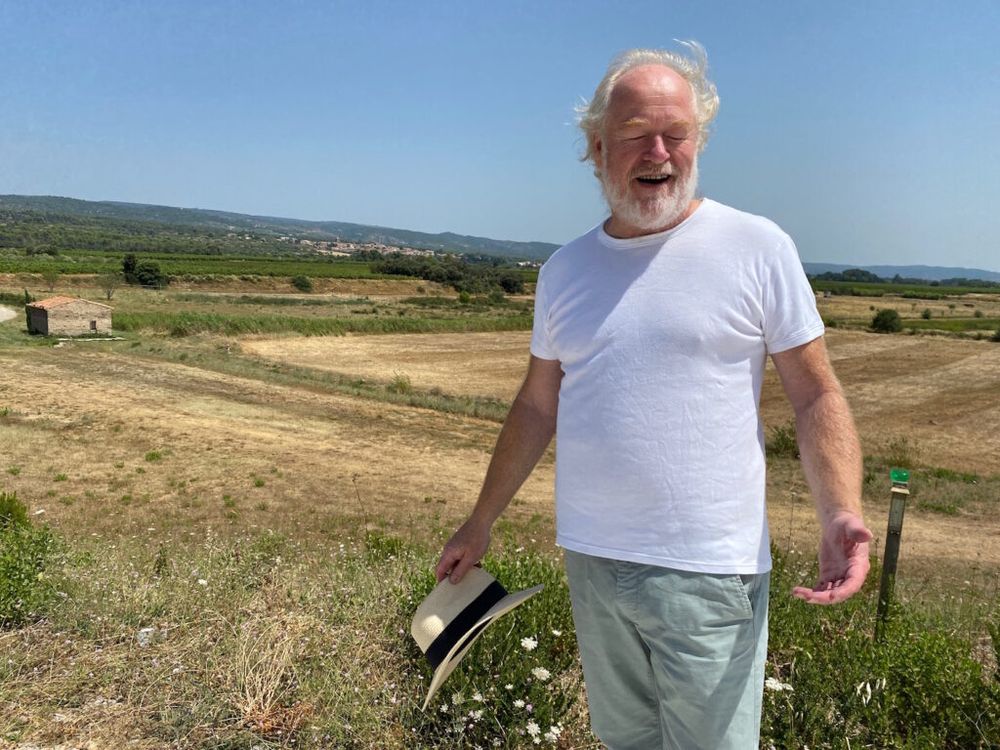
‘Should have brought my sunglasses’: outside the winery with La Livinière in the background
It was the quality of the manure that led him and his team to study biodynamics seriously.
“I investigated and discovered a totally new philosophy,” he says, “By adding plant-based preparations you get better fertiliser, you can prove it, there are many, many more micro-organisms afterwards. The root structure of the vine develops in a different way too.”
He also cites a UCLA blind tasting, in which biodynamic wines were compared with wines that had come from chemical farming, as influential in helping him to decide to farm biodynamically. “On average critics had a four point difference between the two sets of wines which is huge when you are basically measuring from between 90 and 100 points.”
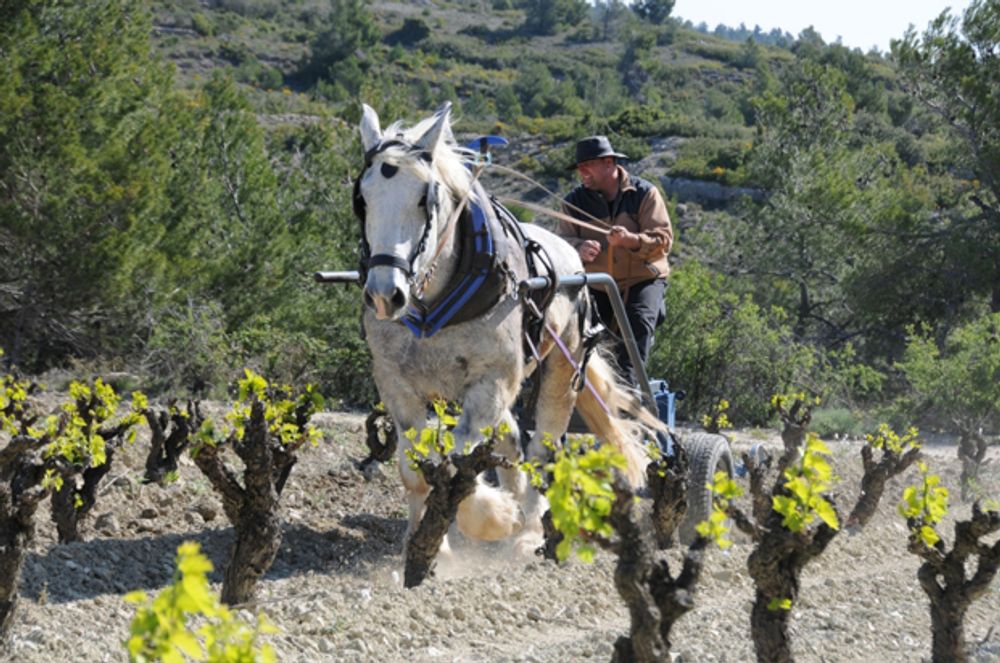
Since 2006 Château Maris has used horses for working in the vineyard
Maris received Ecocert certification in 2002, then Biodyvin in 2004 and Demeter in 2008. They plough with a horse, treat the vines with “herbal teas” such as stinging nettle and pine essence that they spray at special times instead of chemicals, and the grapes are hand-picked after a full moon. The theory is that the gravitational pull is reduced, so less sap is lost with the harvest.
“You have to be attentive to lunar cycles,” he continues, “I’m not sure I’d go so far as to say that the position of the moon on its own will change the way a wine tastes in the glass, but atmospheric pressure and wind is very interesting so, for example, the combination of low atmospheric pressure and a dominant lunar cycle is a really interesting combination and can change the taste of a wine.”
Eden is not a man who does things by the book and he says that they cannot follow the biodynamic calendar religiously.
“For the past seven years we have been recording everything that we have been doing and editing our own biodynamic calendar, so we are not following the blueprint religiously but using it as a starting point, after all you can’t prune everything on a root day.”
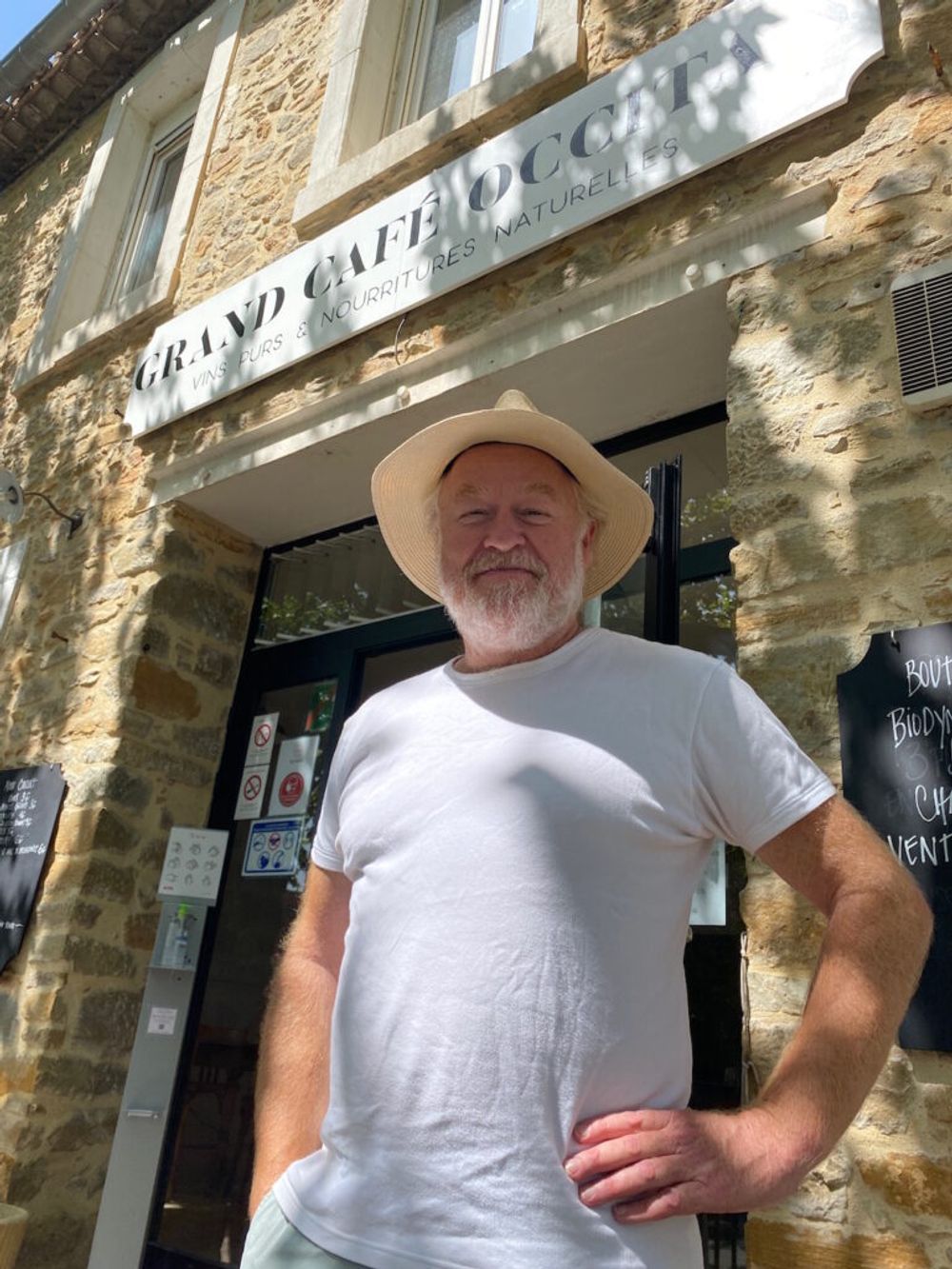
Joie de vivre
It is totally in keeping with his rumbustious character that Bertie Eden has opened a new brasserie smack bang in the middle of a global pandemic, when venues all around the area were shuttering up.
The Grand Café Occitan, has been open since the 10thof July with chef Justin previously at iconic London eaterie St. John, for whose own label wines Benjamin Darnault is the winemaker. There’s a Fergus Henderson vibe to the food as well as we eat simple fresh salads, ox tongue, beetroot, fish and rabbit. A selection of Château Maris’s exciting, terroir-driven wines works so well with special mention going to a 2013 bottle of Las Combes, made from that egg-fermented Grenache – secondary notes of fig and black olive, mixed with dried herbs like thyme and broom.
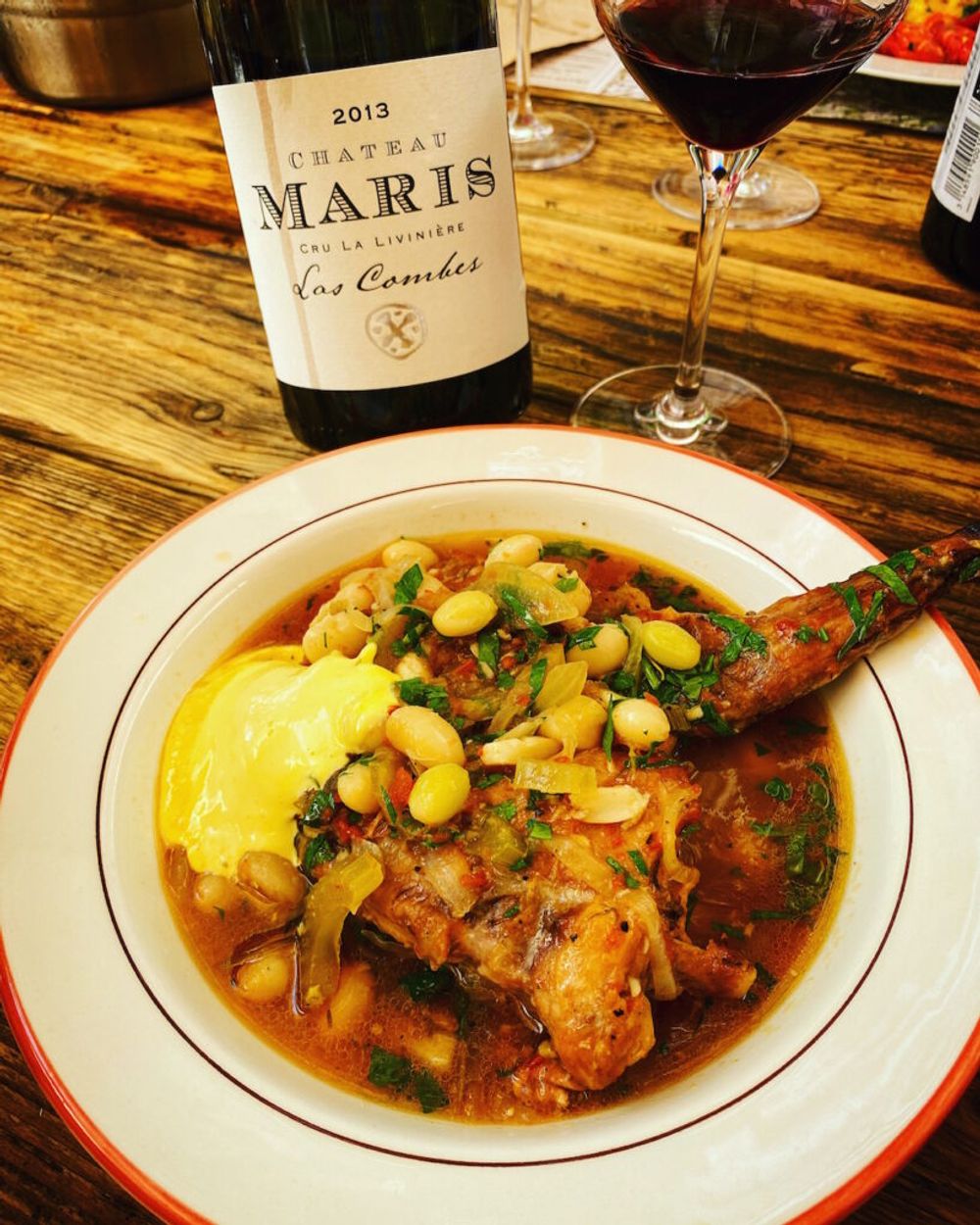
In the same way that biodynamics is an holistic practice, Eden clearly likes to be a part of the entire process of wine production from farming through to selling, with a healthy emphasis on tasting and consumption.
He is sometimes hard to pin down (he says his official title at Maris is “Chief Bottle Washer, emphasis on Chief!”) and his bonhomie and gregariousness possibly detract from not only how important an influence he has been in the Languedoc, but also his global standing in the world of sustainable agriculture, on which he lectures and consults.
He’s a man with fingers in a lot of pies. Apart from Château Maris, Eden also now has the key consultancy role of Chef de product biologique at Invivo the cooperative group that owns 50-60% of French agricultural land, Cordier and Café de Paris. Before year end Invivo will have a majority stake in Vinadeis, the Languedoc-based group that owns 15,000 hectares across 32 domaines and 10 cooperatives – its aim is simply to become France’s largest supplier of organic grapes.
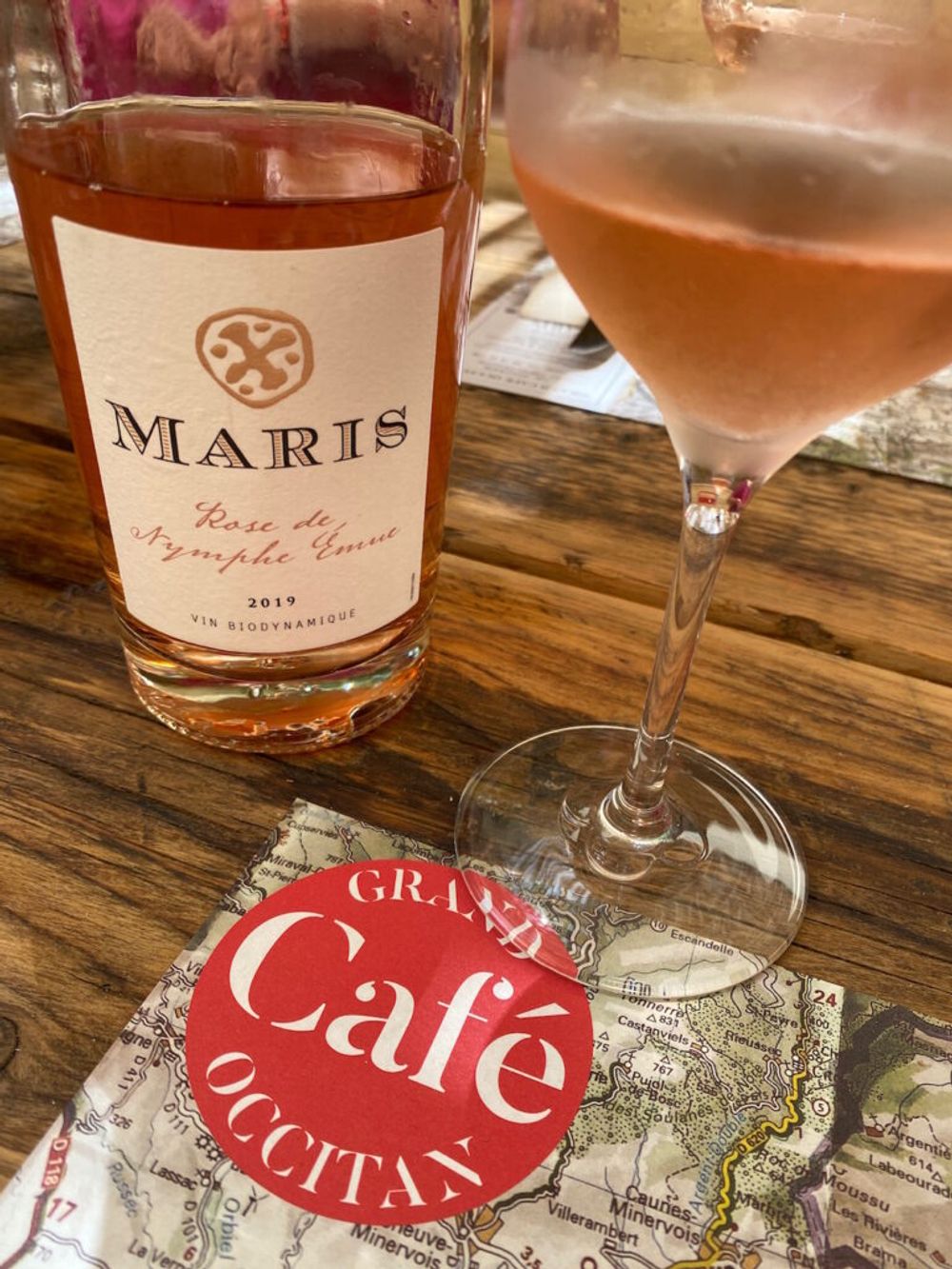
Château Maris produces 200,000 bottles per year of own-fruit wine and a total of 450,000 bottles including bought-in fruit.
The fit with Armit
Bertie Eden’s Château Maris is a recent addition to the Armit Wines stable where it is one of 11 certified organic producers that Armit Wines represents alongside 14 organic, but-not-certified. The organic wine market is predicted to expand over the next five years, with the increase in organic grape supply also on the rise*. The importance of organic viticulture and sustainability to Armit’s managing director, Brett Fleming is just as much about ethical considerations as it is in meeting market demand.
“Organics are a key component in the future sustainability of any premium producer focused on terroir and quality,” Fleming says, “That is not to say only these measures make great wines, but it is fair to suggest we favour those that do. We will continue to represent growers who are deeply connected to their land, whether certified or not.”
(*according to Global Organic Wine Market Report by TechSci)
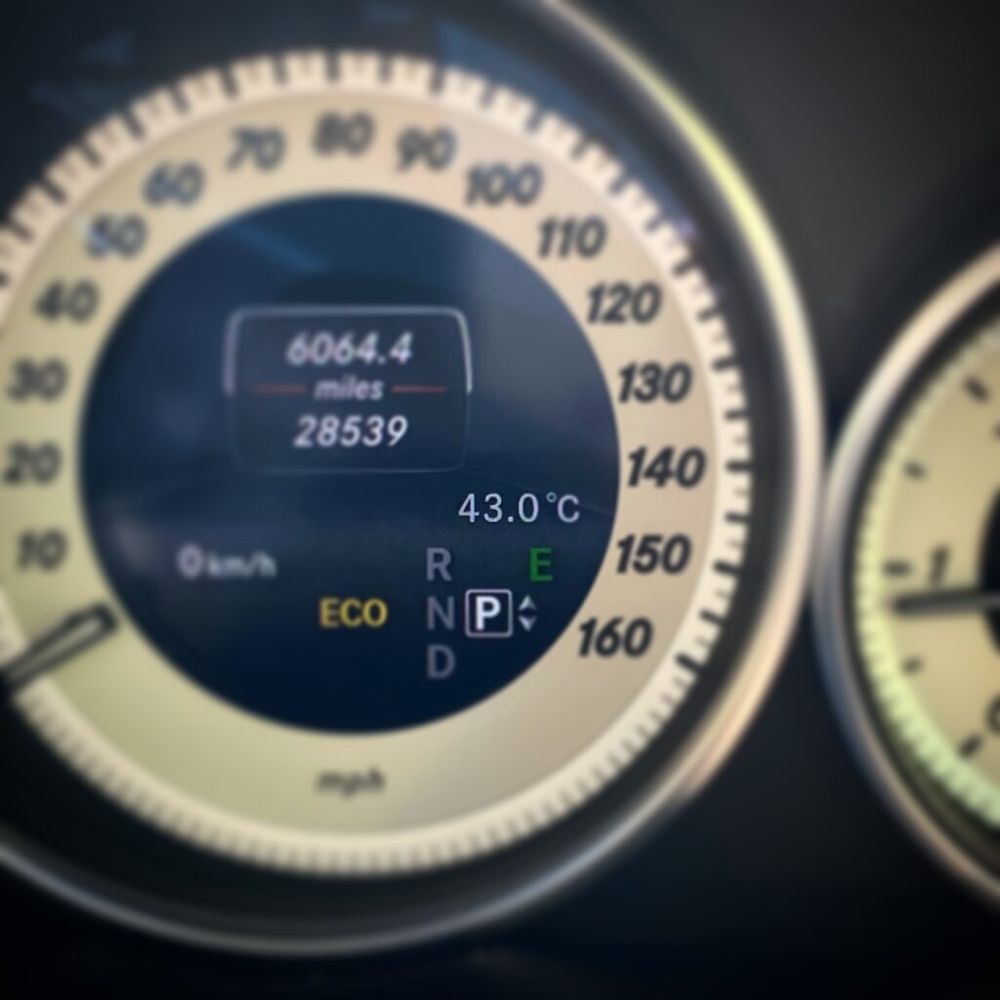
Postscript
Finding Bertie Eden’s winery in Félines Minervois was an adventure in itself.
“Don’t worry it’ll all be part of the story”, he said with a twinkle, after I had arrived 30 minutes late, before clarifying that today’s interview would be conducted alongside a group of his South African pals. “We’ll open a load of bottles, have lunch, I’ve got the world’s best Armagnac…”
The trouble I had (apart from worrying how on earth I was going to drive back) was how on earth I was going to drive there. The small town just before Félines was having what amounted to a ‘triple bypass’ on its trunk roads. And my Sat Nav is not a Smart Sat Nav, you see. You would think it knew the width of my car by now. Like the best back seat driver it sent me with the utmost assurance down a back road probably 2 centimetres narrower than the car. I say ‘probably’ because even with the wing mirrors pulled in and more repeated eye-calculation than an Owen Farrell conversion, it was not going to fit.
Then the 20 minute reversing process began with two locals helping me out of the ‘lobster pot’ sidestreet. At one point the car’s front left tyre was balanced on the edge of someone’s front step where the wrong movement would have sent me into the front of their house. Where was that valet when you needed them most? The fact that it was 43 degrees inside the car was not helping. Not a bit.
And then there is that moment of release when the angles of the car align and you can reverse in a straight line, knowing that you are off the hook, and can now look for a change of shirt.
Memories of trying to reverse the Chrysler mini-bus out of an underground corkscrew car park in Barcelona in similar temperatures came flooding back. That shenanigans cost me two hours and the contents of my mini bar once I had made it to my room. At least I can now swear in Spanish.
Armit Wines imports the wines of Château Maris into the UK. Armit is a supplier partner of The Buyer. To read more about Armit click here.
